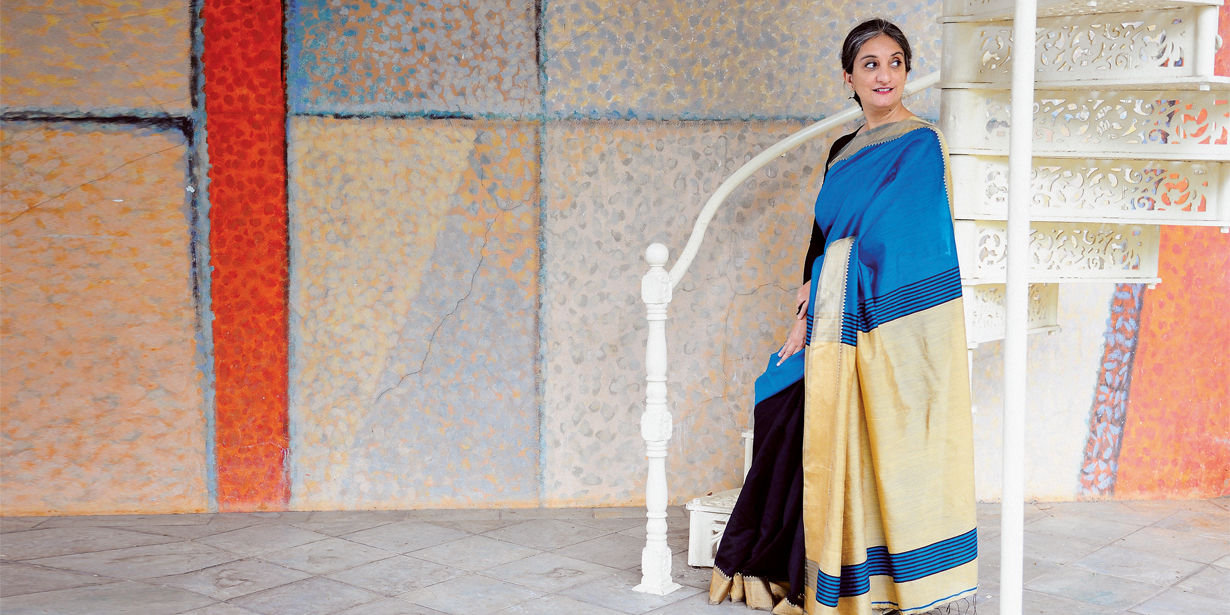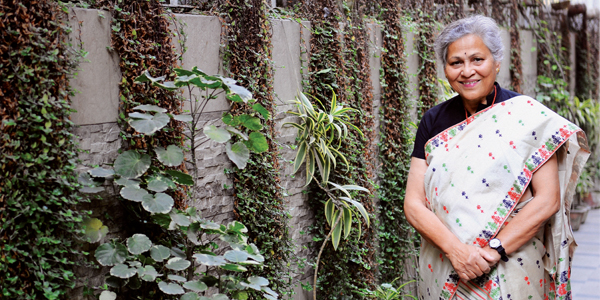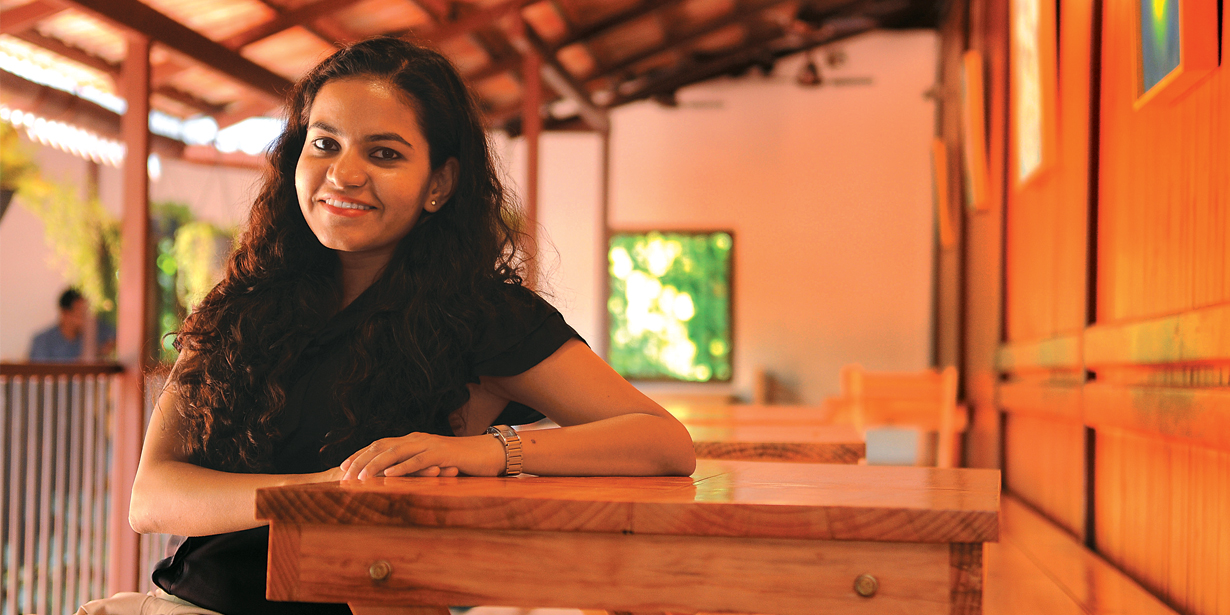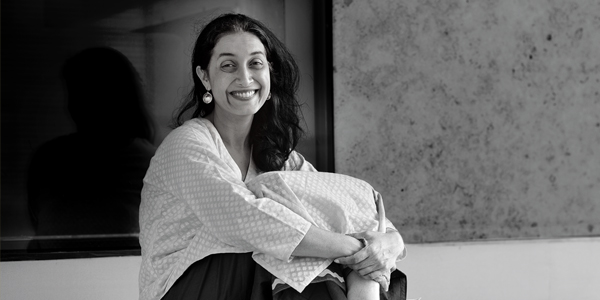Crafter of joy
Payal Nath believes happiness given is happiness multiplied, and that’s what drives her every day
Her father was an officer in the Indian Army and her mother was a sociology professor. No surprises that Kadam Foundation co-founders Payal Nath and sister Pooja Ratnakar had interesting childhoods. Hopping, skipping, and jumping between schools across the country was part of being ‘fauji’ kids. It instilled in them adaptability and an insatiable hunger for challenges. One such hunger, to create change, inevitably led to the launch of Kadam Foundation. It is a venture dedicated to skilling and uplifting women in rural India, an effort to sow the seed of entrepreneurship in these women.
Switching sides
After studying physics from Delhi University in 1991, Nath enrolled herself at the Footwear Design and Development Institute in 1992. Later, Nath worked for Madame Phoenix footwear, where she handled design and production till 1998. That’s also the year in which her daughter Puravi was born. Around this time, she noticed that working with Italian designer shoes no longer excited her. She says, “I told my mum that I’m touching shoes when I want to touch people’s lives.” Her mother Meenakshi Ratnakar is Nath’s idol.
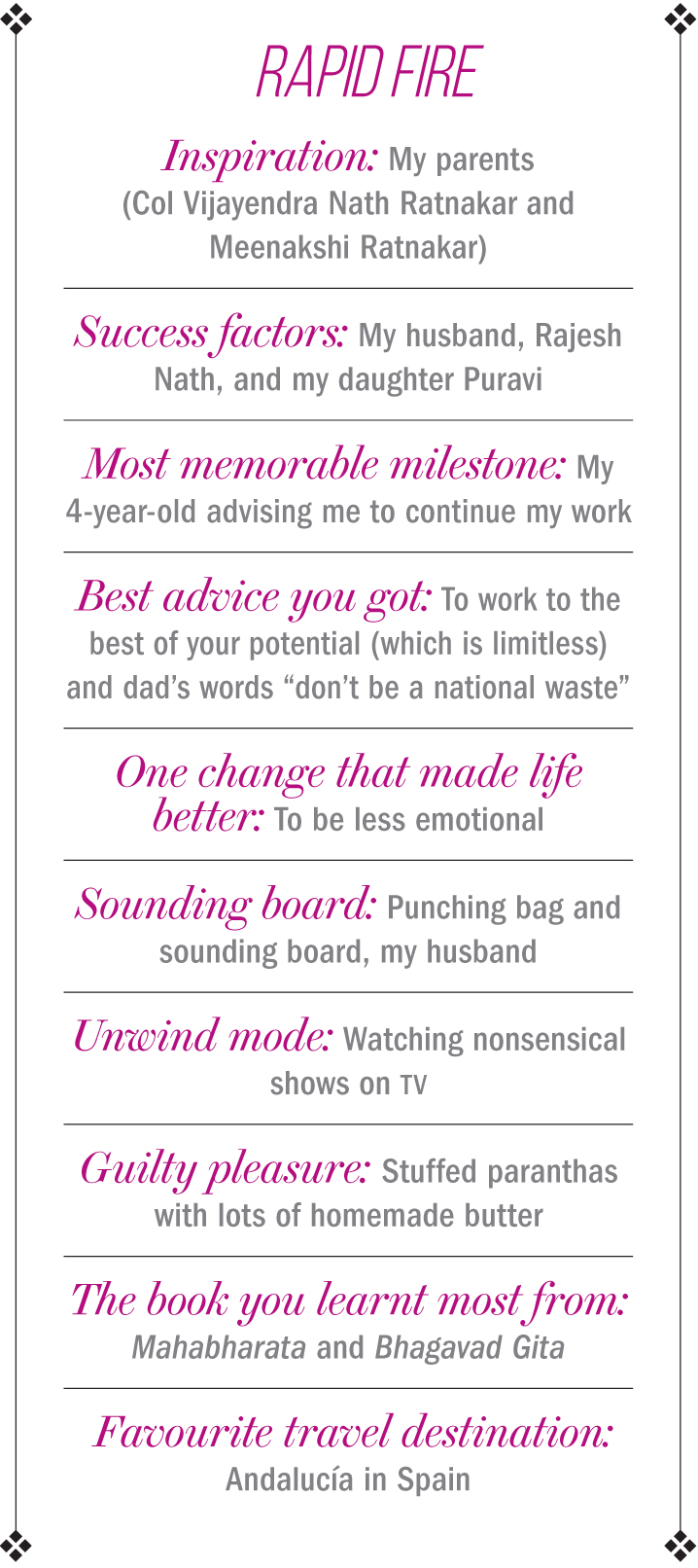 Meenakshi gave up a career in sociology after marriage. However, she took her passion to educate wherever Col VN Ratnakar was posted. Nath proudly talks about how her mother set up schools, often converting poultry farms and stables into classes. What captivated little Nath was her mother’s sense of detachment, inspired by the philosophy in Bhagavad Gita: “Work without expecting a reward.”
Meenakshi gave up a career in sociology after marriage. However, she took her passion to educate wherever Col VN Ratnakar was posted. Nath proudly talks about how her mother set up schools, often converting poultry farms and stables into classes. What captivated little Nath was her mother’s sense of detachment, inspired by the philosophy in Bhagavad Gita: “Work without expecting a reward.”
Most of these schools are still running and some, according to Nath, are thriving. Meenakshi’s work fostered in her daughters a will to better the lives of others. Having worked with every kind of material in the footwear business, Nath had a good sense of the dexterity required in handicrafts and decided to contribute through that.
Cal Calling
In an attempt to commence her social entrepreneurship journey, Nath moved from Delhi to Kolkata (then Calcutta), where handicraft has a good market. During an exhibition, her work got noticed by the Export Promotion Council of Handicrafts, which hired her as a designer. Her first major project was with the development commissioner (handicrafts) at Shantiniketan. It involved making handicraft products with batik leather.
One project followed another, and soon, Nath was juggling government projects across rural east India. She had to chiefly induct rural women into the handicraft industry by training them to make sellable products such as hand woven baskets, block-print sarees and utensils from coconut shells. Besides hands-on training in handicraft, she handled strategy and planning for the project’s processes. That’s a role she’s taken up even at Kadam.
Nath noticed that, after the project was done, the women crafters had no support to market their products. The government also did not encourage private players as middlemen.
Nath worked alongside her sister Pooja (a NIFTian) on many of these projects, and she shared Nath’s concerns. The two sisters came up with the idea of a shop, named Kadam, and in 2006, set it up in New Delhi’s posh Hauz Khas area. This was their bid to help work from the village projects reach the market. Till date, she claims to have helped 5,000-6,000 women across villages that Nath has lost count of. But if you know the lady well, these numbers are humble estimates.
Haat matter
The shop had its share of troubles. Being a handicraft store, each piece on the shelf had a snob value. The shop’s location attracted buyers who would rather shell Rs.1,000 a piece than purchase ten for Rs.100. As a result, the shop couldn’t push volume, critical in generating revenue for each craftsperson back in the village.
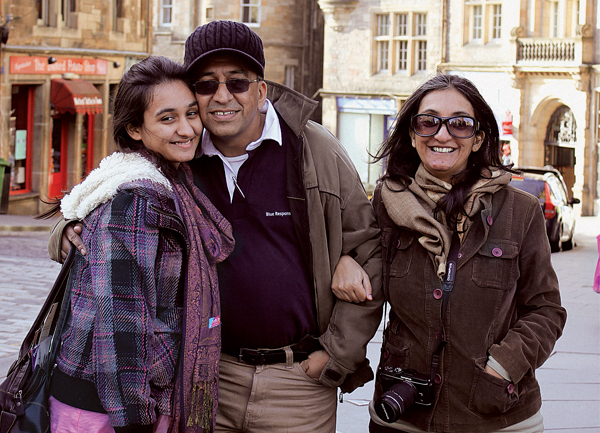
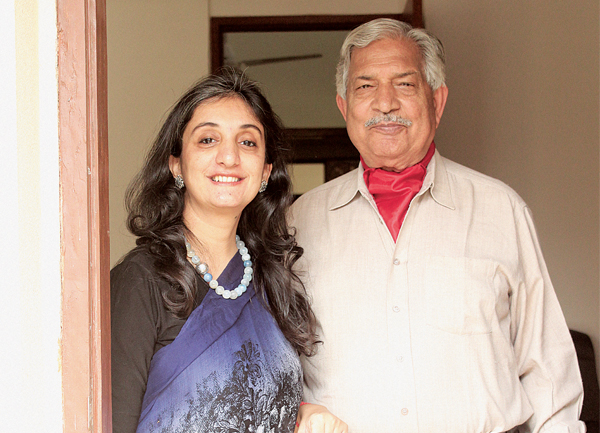
To solve the volume problem, Kadam grew into the Kadam Haat in 2009, a series of exhibitions held across India in locations such as Coimbatore, Chennai, Kolkata, New Delhi and Mumbai; it offered wider reach and consequently more sales. The shop at Hauz Khas could handle a few hundred units a year. However, through Kadam Haat’s exhibitions, some articles have sold upward of 10,000 units.
Kadam had another issue. Each cluster (or a group of women within a village) that they worked with had its own EQ. Nath says “In India, we are all driven by emotion. So, the model for one location can’t be replicated. Dexterity aside, some clusters needed hand-holding to reach the market,” she says. Each woman needs to reach an income target of Rs.2,500 to Rs.7,000 for the cluster to be considered successful, based on the return on investment calculated by the Corporate Social Responsibility (CSR) initiatives by companies such as HCL, or government schemes.
To address this, Kadam Haat sold products from each of its clusters till these units could sell independently. The next stage was to get them to deliver on time. After these two were in place, Kadam tied them up with exporters directly, helping women circumvent intermediaries who are likely to eat into their profits. Presently, the products are exported to the US, Australia, Spain, France, and a few more European countries via eight to 10 exporters. Once in the export space, the crafters make up to Rs.15,000 a month.
Zero to 10K
Before approaching a cluster, Nath and her team researched the market trends on the type of product the village can produce, the price points her potential clients were aiming for, and crucially, skill level. The women in any cluster were categorised into high skill-high speed; high skill-low speed; and poorly skilled, who were trained to improve their craft. Each of Kadam’s projects takes up to three years — from research to the market — but look at the upside. The women go from earning zilch to as much as Rs.10,000 per month.
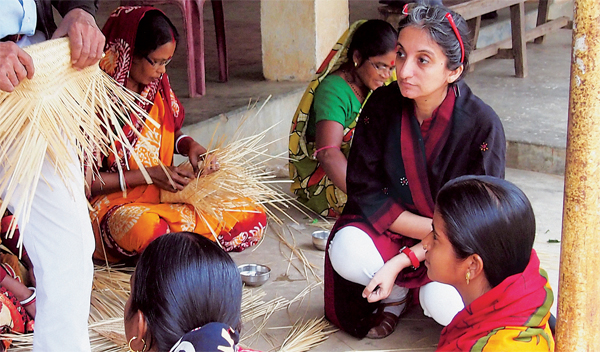
Even today, each location is an exercise in optimising output based on skill level. The next step is finding leaders within each group (of 10 to 20 women) and cluster (formed of 10-12 groups). Kadam has a unique incentive mechanism too. “The group gets lump sum money, not the individual,” says Nath.
For instance, say one group promises to deliver 100 units a month while a second signs up for 200 units. The first group delivers on its promise, but the second group produces only 150 units. Guess which one wins the incentives? The approach helps build credibility in a cluster, a critical aspect when dealing with export clients.
Challenge accepted
When working in rural India, Nath cites caste as a major obstacle. Women from different castes do not want to sit together or drink from the same glass. When working with Kadam, however, they have no choice. To cut down disparity, Kadam offers fair wages to everyone. These are smaller niggles, says Nath. “When approaching a new village, the locals feel threatened and often resist our advances,” she says. However, if someone opposes change, it strengthens Nath’s resolve. True army kid then.
When dealing with a hostile environment, the team needs to be just as passionate as the leader. Kadam has lots of volunteers in the villages where they work, but just about 20 people on the payroll. The small team allows for the extra moolah to be returned to the village community. The team comprises students from the National Institute of Design (NIDs) and recruits from the Institute for Social and Economic Change (ISEC). Each cluster also involves about 40-50 local volunteers.
Nath is also a guest lecturer at the National Institute of Fashion Technology and, as a result, gets a lot of interns. The group also gets international interns from Egypt, Bavaria, and Morocco (four to five yearly).
The drop-off rate is phenomenally high (an average of 50%) during the workshops since, unlike regular government programmes, the crafts people do not get paid till they reach a certain skill level. And so, it’s common to see the men shouting at their wives and asking them to withdraw from the programme. At these times, Masters of Social Work (MSWs) come handy. They usually are part of CSR programmes of corporates, and men from these programmes help the villagers come onboard.
Turning over
Kadam’s yearly revenue does not exceed Rs.10 million. But, in social entrepreneurship, revenue is not the only goal. “Kadam Haat is a platform built to support, not monetise, the products the women make. We never worked towards creating a brand. We have only focussed on nation-building.” Nath’s vision is to have the women come to her and say, “Didi, we sold Rs.5 million worth of goods this year.”
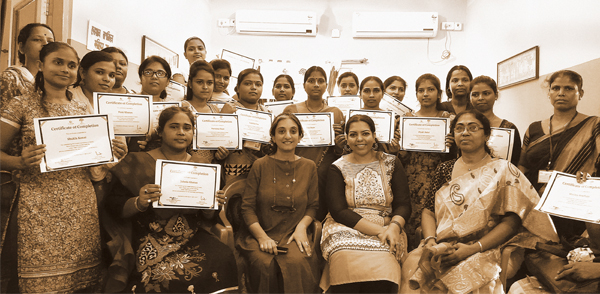
On bad days, when she’s exhausted, Nath catches herself wondering why does she not sit back and enjoy the easy life that comes from having a husband who is well off, and a lovely design studio and library. “Why don’t I read and paint? Maine duniya ka thheka nahi liya hai (I’m not responsible for the world),” she says. Her husband tells her to sleep over it. Then, the phone rings and a voice pipes up, “Didi, jaano ki holo? (Sister, you know what happened?)”. It’s a call from one of the many project villages. A short chat later, Nath is relieved and knows that she is right where she belongs. She says that her happiness comes from the joy that resonates in the other’s voice.
She shares a story about her father, Col Ratnakar. He was the Director of the Birla Education Trust (between 2003-13) and worked at the BITS Pilani campus. One day, an elated BK Birla walked into the office to show the institute’s balance sheets. Birla asked the colonel whether he saw the impressive numbers. The colonel responded saying, “Yeh number nahi samajh aa rahe, par inko dekhne mein apki khushi samajh aa rahi hai.” (“I cannot grasp the numbers, but I can feel the happiness you derive seeing them.”) The colonel continued, “It’s the same kind of happiness I derived out of playing with marbles as a child.”
His daughter, Nath, says it doesn’t matter whether you get happiness from generating revenue, winning at the game of marbles, or creating entrepreneurs in villages. If you can identify that one thing that gives you joy and work in that space, you will be successful.
